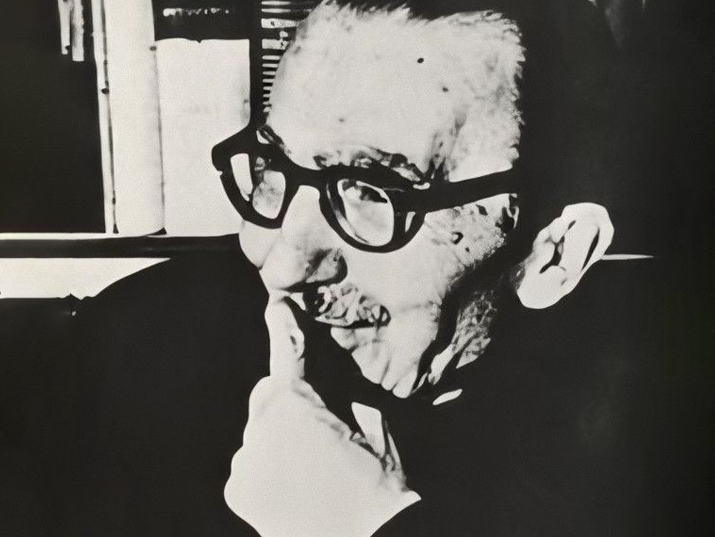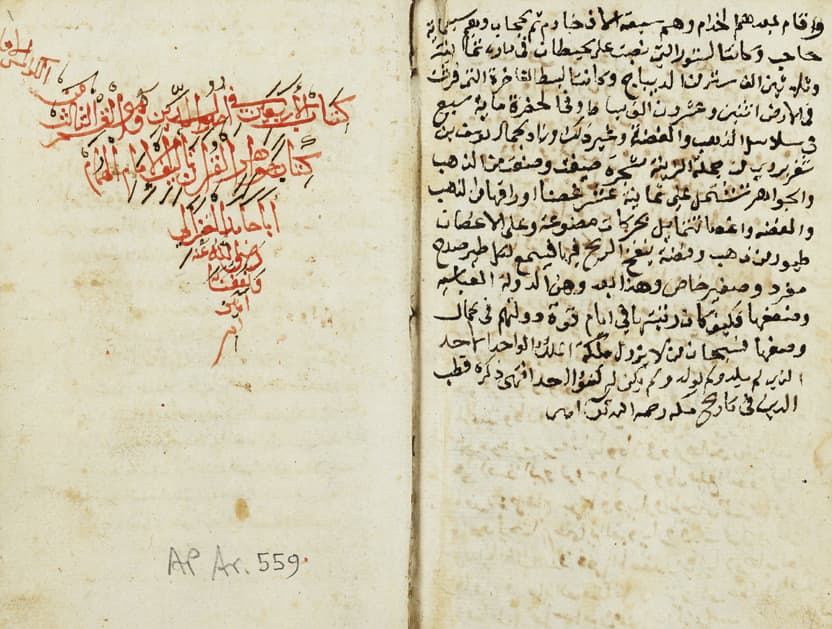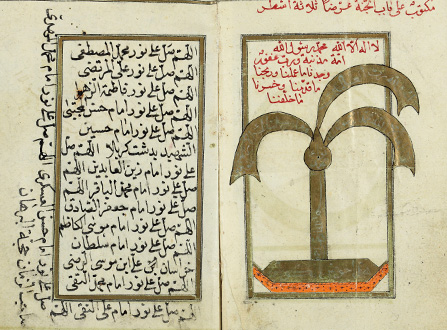Elias Tcherikover (1881-1943) was a historian of Russian Jewish life and anti-Jewish violence. He was born in Poltava, where his father was a pioneer of the Ḥibat Tsiyon Movement. After the 1905 Revolution, he devoted himself to Russian-Jewish studies, and contributed articles to various Russian-Jewish periodicals. In 1915 Tcherikover moved to New York, where participated in the Jewish Congress movement. Returning to Russia after the February Revolution, Tcherikover settled in Kiev and became a leading figure in a small group of Jewish intellectuals who compiled many thousands of eyewitness reports and documents on pogroms and other phases of Jewish life in the Ukraine. In 1921 he left for Berlin, where he and his colleagues plan to publish a seven-volume history of the pogrom movement in the Ukraine in the years 1917–1921. In 1925 Tcherikover was one of the founders of the YIVO Institute in Vilnius and later became secretary of the Historical Section of YIVO. In 1920s-1930s he was a key expert in a few trials relating to antisemitism (for example in Sholem Schwartzbard’s trial in Paris in 1927). After Hitler's rise to power, Tcherikover moved to Paris and in 1940 immigrated to the US. Materials in the Tcherikover’ personal collection refer to various aspects of pogroms against the Jews in Ukraine, Belarus and Lithuania, to aiding the pogroms’ victims, and to the international Jewish public struggle against the pogroms and those responsible for them. The collection is especially strong in numerous witness testimonies of the pogroms in various places, investigation materials and correspondence on the pogroms. The collection includes articles from press in relation to the pogroms, reports of different organizations and public figures. It contains references to the pogroms of the local Ukrainian, German, Soviet authorities and the military command personnel. An important part of the collection are documents that shed light on organization of Jewish self-defense and on the All-Russian Union of Jewish Warriors (1917-1919). The collection demonstrates activities of Western Jewish organizations, including the Committee of Jewish Delegations in Paris and the Committee for the Defense of Sholem Schwartzbard. Inter alia, the collection contains records relating to Sholem Schwartzbard’s trial --
Tcherikover (Tsherikover), Elias
لتكبير النص لتصغير النص
| العنوان |
Tcherikover (Tsherikover), Elias. |
|---|---|
| مساهم |
Leo,Motzkin 1867-1933 Shalom,Shvartsbard 1886-1938 ChaimTcherikover David,Frankfurter 1909-1982 Ber,Borochov 1881-1917 Robert,Lansing 1864-1928 Francesco Saverio,Nitti 1868-1953 Ḥibat Tsiyon Wiener Library Yivo Institute for Jewish Research Schwarzbard's Defense Committee Mizrakh Yidisher Historisher Arkhiv Jewish National Secretariat. Kievskai︠a︡ raĭonnai︠a︡ komissii︠a︡ evreĭskogo obshchestvennogo komiteta po okazanii︠u︡ pomoshchi postradavshim ot pogromov Comité des délégations juives (Paris, France) Unione delle comunità ebraiche italiane American Jewish Congress |
| ملاحظات |
Various materials related to Elias Tcherikover's activities and life located at the YIVO Archives in New York. These materials include a collection based on the Mizrakh Yidisher Historisher Arkhiv referring mainly to the pogroms in Ukraine, the trial of Sholem Schwartzbard and other related issues (RG80). Another collection in YIVO (RG 81) contains Elias Tcherikover's notes, personal correspondence, manuscripts, and published works on the following topics: World War I Jews in Russia Chmielnicki Massacres Jewish historiography Hevrah Mefitsei Haskalah in Russia Aaron Liebermann’s life French revolution, Napoleon and the Jews history of the Jews in the Ukraine pogroms in the Ukraine, 917-1921 and the founding of the Jewish Colonization Association. The collection contains correspondence with family members and various individuals including Baron Alfred de Gunzburg, historians Meir Balaban, Saul Borovoi, Simon Dubnow, Saul Ginsburg, and more. This collection contains also records relating to various court trials and materials relating to publications of the Historical Section of YIVO. Papers on the pogroms during the Russian Civil War and WWI, collected by Elias Tcherikover, included also in the Wroblewski Library of the Lithuanian Academy of Sciences (F424). |
| هذا جزء من |
Tcherikover (Tsherikover), Elias - Private Collection |
| مستوى التوصيف |
Fonds Record |
| lds57 |
Elias Tcherikover (1881 Poltava-New York 1943) was born to a merchant-class household. His father, Khaim, was a prominent community leader in Poltava, and one of the first Ḥibat Tsiyon movement activists. In 1898 Elias Tcherikover left for Odessa where he graduated from art school and in 1904 joined Zionist-Socialist circles. After the Russian Revolution of 1905, he moved to St. Petersburg and to study at the university. He was arrested shortly thereafter at an illegal conference of the Mensheviks. In 1905 Tcherikover began his career as a writer and scholar. He published articles in the Russian-Jewish press and in the Russian radical press. Over the years 1910-1914, Tcherikover was editorial secretary for the pedagogical journal of OPE Vestnik OPE. On the fiftieth anniversary of the organization he wrote a book on the history of the society to spread education among the Jews in Russia. In 1915 Tcherikover moved to New York, where, influenced by Ber Borochov, he began to write in Yiddish, promoted Yiddishism and the establishment of a Jewish Congress. After the February Revolution, he returned to Russia and in late 1918 moved to Kiev, where became an active leader in the Jewish National Secretariat. He was also the leading spirit of a small group of Jewish intellectuals who compiled many thousands of eyewitness reports and documents on pogroms and Jewish life in the Ukraine. In 1921 Tcherikover and other members of the group left for Berlin, where they founded the Mizrakh Yidisher Historisher Arkhiv (Ostjuedisches Historisches Archiv) with the plan to publish a seven-volume history of the pogrom movement in the Ukraine in the years 1917–1921. Tcherikover himself wrote two historical studies on pogroms: Antisemitizm un pogromen in Ukraine, 1917–1918 (published in Yiddish and Russian, 1923) and Di Ukrainer pogromen in 1919, published posthumously (1965). In 1925, he participated in foundation of the YIVO in Vilnius and later headed its Historical Section. Tcherikover lived in Berlin until Adolf Hitler’s rise to power. He moved to Paris, and in 1940 immigrated to the US and settled in New York. In 1920s-1930s Tcherikover was a key figure in the preparation of the defense for Shalom Schwartzbard in Paris who was tried for the assasination of Symon Petliura (1927) in the Berne trial on the Protocols of the Elders of Zion (1934–35) and in the defense for David Frankfurter in Davos (1936) who was tried for the assassination of the Swiss branch leader of the Nazi Party. In his last years, Tcherikover was active in the American branch of YIVO. |
| lds58 |
Russian English French Yiddish Ukrainian some German some Hebrew some Dutch some Polish |
| رقم النظام |
990043211690205171 |
| קישורים |
פרטים על מיקום החומר/Location&access |
-
-
-
-
-
-
-
-
-
-
-
-
-
-
-
-
-
-
-
- إظهار العناصر الـ 10 التالية من أصل 480
- عرض الكل
-
-
תנאי השימוש:
تمّ وضع شروط استخدام تتناسب مع كل ملف أرشيفي على حدة.
تظهر شروط الاستخدام في صفحة الملف الأرشيفي على موقع المكتبة الوطنية.
لمزيد من المعلومات حول خدمة الاستيضاح عن حالة حقوق التأليف والنشر، وشروط استخدام المواد المتاحة في مجموعات المكتبة، انقروا هنا.
MARC RECORDS
وسوم
- Shvartsbard, Shalom, 1886-1938 -- Trials, litigation, etc
- Pogroms -- Ukraine
- Antisemitism -- Ukraine -- History -- 20th century
- Jews -- Ukraine -- History
- Self-defense
- Bern Trial, Bern, Switzerland, 1934-1935
- Assassins -- Protocols of the wise men of Zion
- Poltava (Ukraine)
- Kyïv (Ukraine)
- Berlin (Germany)
- Vilnius (Lithuania)
- Z︠H︡ytomyr (Ukraine)
- Paris (France)
- New York (N.Y.)
- Khmelnytskyi (Ukraine)
- Odesa (Ukraine)
- Berdychiv (Ukraine)
أتعرفون المزيد عن هذا العنصر؟ وجدتم خطأ ما؟

 سجل الدخول باستخدام غوغل
سجل الدخول باستخدام غوغل
 تسجيل الدخول باستخدام فاسيبوك
تسجيل الدخول باستخدام فاسيبوك


